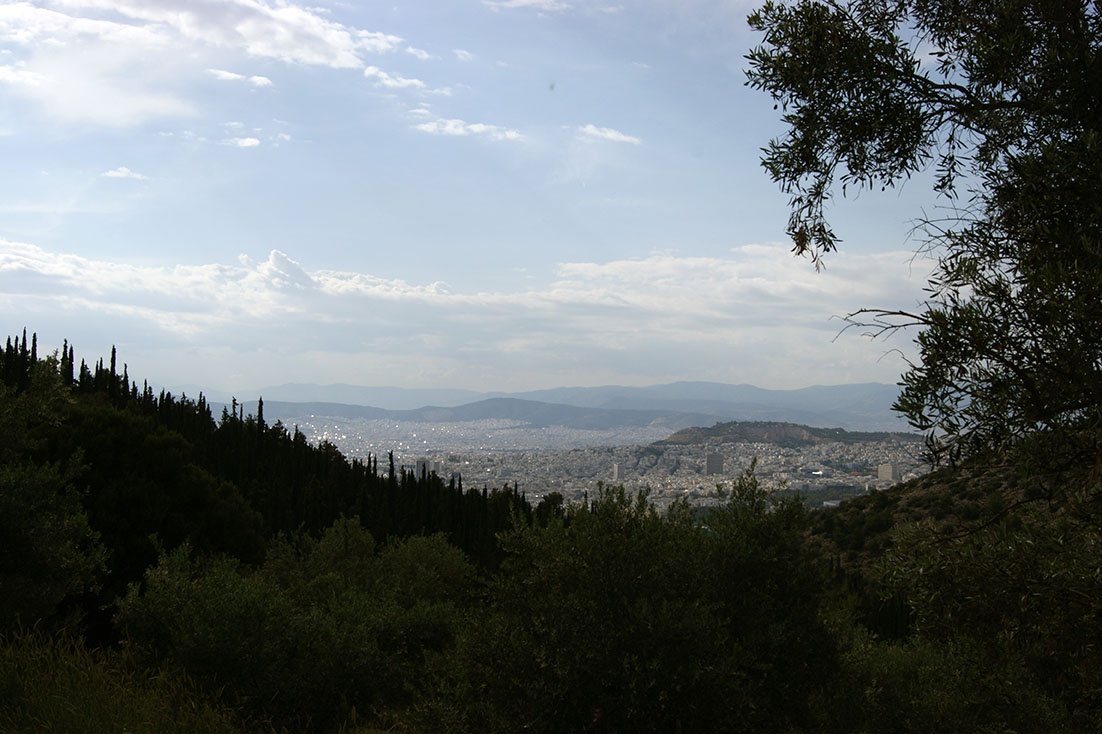
Uploaded on 2015-10-19 by nagorop
From my own observation and experience, I feel that there is an intensive UHI effect in Athens during summer period which has a negative impact in human comfort and human health. The three main reasons of this problem are the lack of open green spaces (2.0-2.5m2 green area per citizen), the excessive use of air conditioning and the high traffic emmisions. After a quick search on the web, I found that a project called "Thermopolis 2009" took place during the summer period of 2009 in Athens, among other european cities. The task of this project was to study the UHI effects in these cities, using both satelite and in-situ ground measurements. To measure the UHI, surface temperatures where compared on altitudes below 200m between the urban area of the city center and a suburban/rural area northeast of Athens near the airport. The results varied between -5°C during daytime (rural temperature was higher) and +4°C during nightime (urban temperature was higher). Overall the daytime temperature scale of the Land Surface Temperature (LST) maps ranged from 20-49°C while the nightime LST scale ranged from 10-29°C. On the two images below you can see the contrast between an urban scene in the center of the city (near my place of residence) and a rural scene on the mountain of Hymettus. On the first image one can observe the lack of green space in an excessively built environment while the second image shows one of the surrounding mountains which form the natural borders of the urban fabric. The dominant presence of concrete and asphalt surfaces with their high thermal mass in the city combined with the absence of adequate green spaces in close vicinity, are causing absorbtion, storage and then re-emission of the heat to the urban air at night. ![enter image description here][1] ![enter image description here][2] [1]: https://edxuploads.s3.amazonaws.com/14450248908155499.jpg [2]: https://edxuploads.s3.amazonaws.com/1445024953482579.jpg **Q: Which are the measures you would propose?** The measures I would propose in order to reduce the UHI effect are: 1. Increase the green areas in the highly densed areas 2. Encourage the energy efficiency of the existing buildings with measures such as external insulation, green roofs etc in order to reduce the use of air conditioning. Green roofs also contribute to the cooling of the external temperature. 3. Extend and upgrade the public transportation system, limiting the car accessibility in central areas. **Q: Is UHI effect concerning policy making in your area?** I am not aware of any local policy directly associated to the UHI effect. However there are several on-going policies from the municipality of Athens which are on the same direction, and could result in the mitigation of the effect. For example there has been a constant policy throughout the years towards the increase of green spaces, the upgrade of public transport (mainly during the Olympics) as well as financial incentives for the energy efficiency of the existing buildings. However there are no significant improvements in the last 5 years, mainly due to the current financial situation.